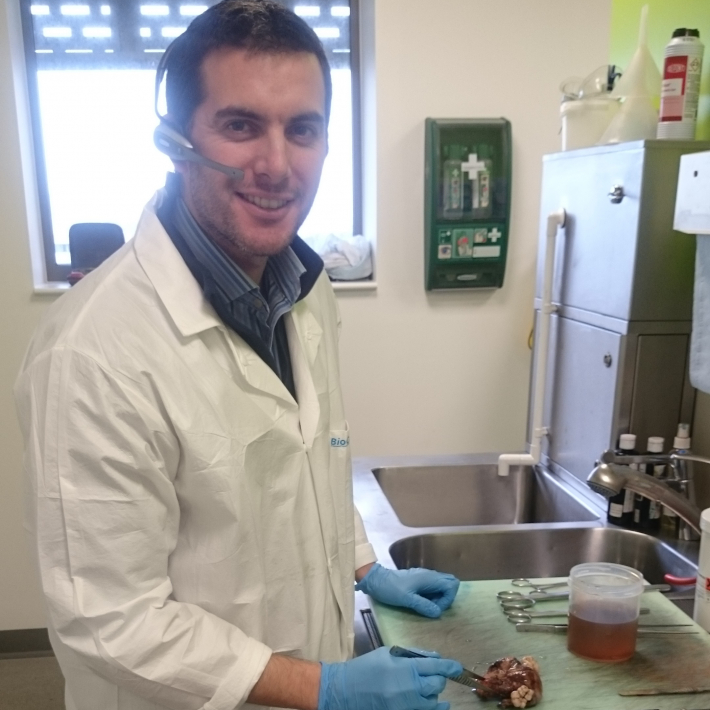"Each patient is different and we all work together, figuring out each piece of the puzzle."
Nabeel Andrew Salmons
Consultant in cellular pathology

-
University gave me the chance to learn about a wide range of specialties in medicine and prepared me for foundation training [1] as a doctor. I had a well-rounded experience but I was keen to learn more about pathology to gain a greater understanding of the diagnostic process of understanding disease development and the science behind the cure. I completed a practical attachment in toxicology to widen my knowledge; my attachment was in a molecular pathology lab and focused on a study in liver pathology which I really enjoyed.
Soon enough I was hooked; I wanted to learn as much as possible about diseases and the body. While training as a foundation doctor (which was known as a house officer at the time), I used my initiative to gain as much knowledge about pathology as I possibly could. In my spare time I attended meetings in the department and spoke to colleagues, finding out how the pathologist was integral to the patient’s pathway and their close working relationships with clinicians to diagnose and treat patients.
My experiences spurred me on and I went on to apply for specialty training. Although I found the decision to train in pathology easy, I still met challenges such as explaining what pathology is to both lay people and medical colleagues alike who had very little knowledge of what we do and becoming familiar with and understanding the many different pathologies involved throughout the body. I quickly found I enjoyed overcoming these challenges and they helped me to gain more of an understanding of the disease process and to develop as a doctor. I then progressed through my specialty training and as a result received a certificate of completion of training [2] to progress to becoming a consultant.
-
Like most jobs in medicine, every day is varied and I never find myself doing the same thing day to day so I’m never bored! My day can start with assessments and reporting patients’ cases which include complex cancer cases requiring detailed discussion and correlation with the clinical and imaging findings during multidisciplinary meetings with other specialists. I can then be involved in reviewing urgent ‘on the table’ biopsies where we give a diagnosis to a surgeon while the patient is still in surgery.
As a consultant at my trust I cover surgical pathology and cytology. I am the co-lead on gynaecological pathology, co-lead on lung pathology and the pathology lead for the cervical screening programme in our hospital which is one of the regional hubs in the West Midlands.
Teaching is an integral part of my day-to-day work and my role gives me the chance to teach junior doctors. I train medical students, surgical trainees, healthcare scientists and other junior doctors. I also have the opportunity to promote pathology publicly through events such as National Pathology week. We are always keen for schools students to visit the lab and hopefully inspire the next generation as a result!
-
I really enjoy working with colleagues who specialise in different areas. Each patient is different and we all work together, figuring out each piece of the puzzle to make a diagnosis.
-
Throughout my career I have learned that a number of qualities are important to a successful career in histopathology. Attention to detail is vital, as is having an inquisitive mind so you can seek answers and put information together to reach a diagnosis.
